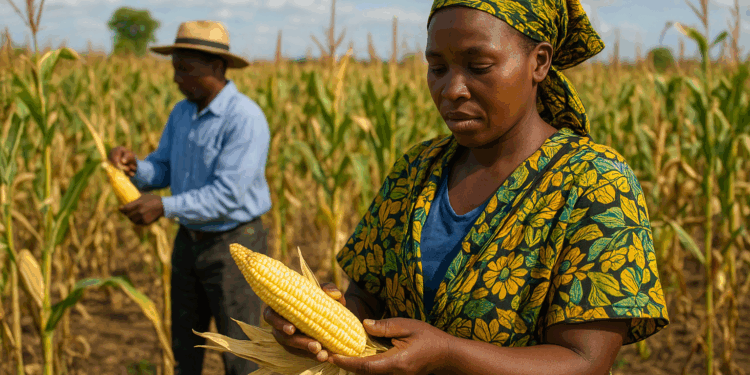
Share on FacebookShare on TwitterShare via Whatsapp
Under a scorching Dodoma sky,Tanzania took a decisive step that will reshape its agricultural future. With a $63.2 million investment and a clear mission — to protect public health,save crops,and conquer new markets — the country officially launched the Tanzania Initiative to Prevent Aflatoxin Contamination (TANIPAC).
The ambitious program aims to benefit more than 60,000 farmers,providing them with modern technology,practical knowledge,and access to international markets. It is Tanzania’s boldest offensive yet against an invisible enemy that has hindered its growth for decades: aflatoxins,toxic compounds that contaminate staple crops such as maize,peanuts,and rice. “We cannot talk about food security without food safety,” declared President Samia Suluhu Hassan during the official launch ceremony in Dodoma. “TANIPAC is not just an agricultural project — it’s an economic imperative. We want our farmers to produce safe,competitive,world-class crops.”
Dreams Hub and Clínica Esperanza sign strategic alliance to drive health and innovation in Equatorial Guinea
A Silent Threat That Cost Millions
Aflatoxins have long plagued Tanzania’s agriculture,causing serious health risks,lowering productivity,and blocking access to lucrative global markets. For Tanzania,the challenge was twofold: ensuring safe,nutritious food for its people while boosting the competitiveness of its exports.
The solution came through a strategic partnership:
$34 million contributed by the Government of Tanzania
$20 million from the Global Agriculture and Food Security Program (GAFSP)
$9.2 million from the African Development Bank (AfDB)
This collaborative effort makes TANIPAC one of the most ambitious food safety initiatives in East Africa.
Technology Driving Transformation
TANIPAC is equipping farmers with metal silos,solar dryers,and moisture meters — essential tools to protect harvests and guarantee food safety. Beyond technology,the project is providing hands-on training to over 60,empowering them with modern post-harvest techniques to prevent contamination at every stage.
Since its inception in 2019,TANIPAC has been implemented across 18 mainland councils and two in Zanzibar,leading to:
Modernized quality control laboratories
Stronger agricultural institutions
Nationwide awareness campaigns
“TANIPAC proves that strategic investment in agriculture saves lives and creates opportunities,” said Philip Boahen,GAFSP Coordinator at the AfDB. “We’re preventing multimillion-dollar losses while opening doors to high-value international markets for Tanzanian farmers.”
TANIPAC is fully integrated into the country’s Vision 2025 and Five-Year Development Plan,reinforcing Tanzania’s position as a regional leader in agricultural innovation and food security. “Our farmers are now better prepared than ever,” highlighted Clepin Josephat,TANIPAC’s National Project Coordinator. “Thanks to this initiative,Tanzanian harvests can reach local tables and global markets safely and competitively.”
Impact Beyond Borders
The success of TANIPAC extends far beyond Tanzania’s borders. The program offers a replicable model for African nations seeking to balance public health,agricultural productivity,and international competitiveness. For smallholder farmers like Asha,the change is life-changing: “Before,I lost almost half my harvest to contamination. Now,I can store my maize safely and sell it at better prices. TANIPAC didn’t just save my livelihood — it gave me hope.” With TANIPAC,Tanzania is moving from battling food insecurity to leading Africa’s sustainable agricultural transformation. Once shut out of global markets,the country is now emerging as a trusted supplier of safe,high-quality crops and a global reference point for food safety innovation.
United News - unews.co.za